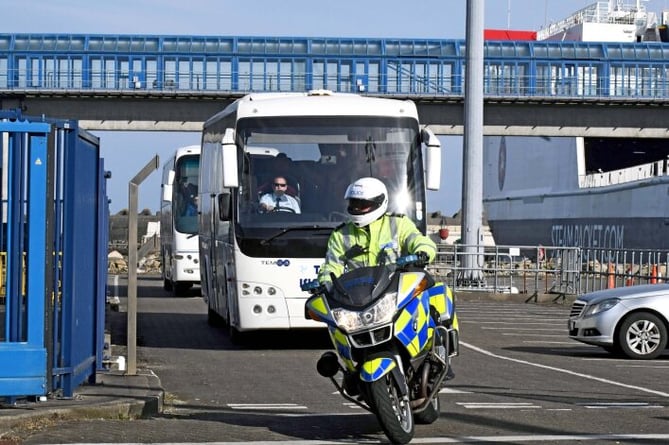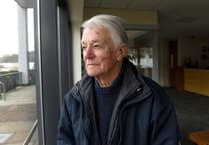Residents who were controversially quarantined in the Comis Hotel during the first Covid lockdown should have their charges refunded.
Council of Ministers has given the commitment in its initial response to 31 recommendations outlined in the Kate Brunner Covid inquiry into the government’s handling of the pandemic.
The 3,500-plus page inquiry report, published earlier this year, concluded that the Isle of Man’s approach was ‘reasonable and was successful’ but emergency planning was inadequate and Ministers moved later than they should have done to control the virus.
One of the defining images of the pandemic was of the first group of returning residents being taken under police escort to the Comis Hotel in Santon, where they spent the next 14 days in quarantine in secure accommodation.
Each had to pay a means-tested contribution, capped at £1,000, towards the cost of transport, accommodation and three meals a day during their time in quarantine.
Following public outcry the police escort was abandoned for subsequent returnees but the Comis quarantines continued, rather than allowing residents to self-isolate in their own homes.
Many complained about feeling abandoned and treated like criminals, having been forced to spend 23 hours a day in their hotel rooms, with a security alarm on the door, and supervised by security on the walk down to do their daily exercise.
The Brunner review concludes that the decision to quarantine residents in the Comis Hotel was ‘awful’ for everyone involved but lawful and ‘proportionate in the circumstances’. CoMin’s initial response to the Brunner inquiry findings will be laid before this month’s Tynwald sitting ahead of a more detailed report on the implementation of the recommendations being brought to the court in July.
Recommendation 14 states the ‘government should refund the charges imposed on returning residents at the Comis and acknowledge that they went through a very difficult experience, which was for the good of the island’.
It in its response CoMin says Treasury will review the options and develop a mechanism for refunding the charges imposed.
In a foreword, Chief Minister Alfred Cannan notes: ‘It is hard to believe that four years have passed since the World Health Organisation declared the Covid-19 outbreak to be pandemic.
‘We all recognise that the island faced unprecedented challenges and circumstances at that time. For many of us, Covid-19 continues to cast a long shadow.’
He said one of the biggest ‘learnings’ is how government will face a future pandemic and said ‘considerable’ work has been undertaken by the Department of Home Affairs in this area.
The UK national risk register has rated the possibility of a ‘catastrophic’ pandemic as 5% to 25% likely in a five-year period.
Mr Cannan said that while Ministers support in principle all the Brunner report’s recommendations, he had to ‘flag at this early stage’ that many of the recommendations require much more detailed assessment of the financial and resourcing implications involved before they can be accepted fully.
Kate Brunner’s first recommendation focused on emergency planning which she said should be given careful and formal consideration at the start of any emergency, and deviation from the plan should be explicitly minuted and agreed.
CoMin’s response is that the major incident response plan has been updated to reflect pandemic ‘learnings in the review and includes greater clarity on the political decision making governance’.
It said work is under way on a revised infectious disease pandemic plan which will support and integrate with the central emergency plan.
Ministers agreed that a mass vaccination plan should be in place and should form part of any pandemic plans.
In response to a further Brunner recommendation, CoMin said Manx Care is considering ways to increase testing capacity in the event of a pandemic.
And it acknowledged that developing and funding a comprehensive Covid recovery strategy should be considered with a particular focus on education and children.




